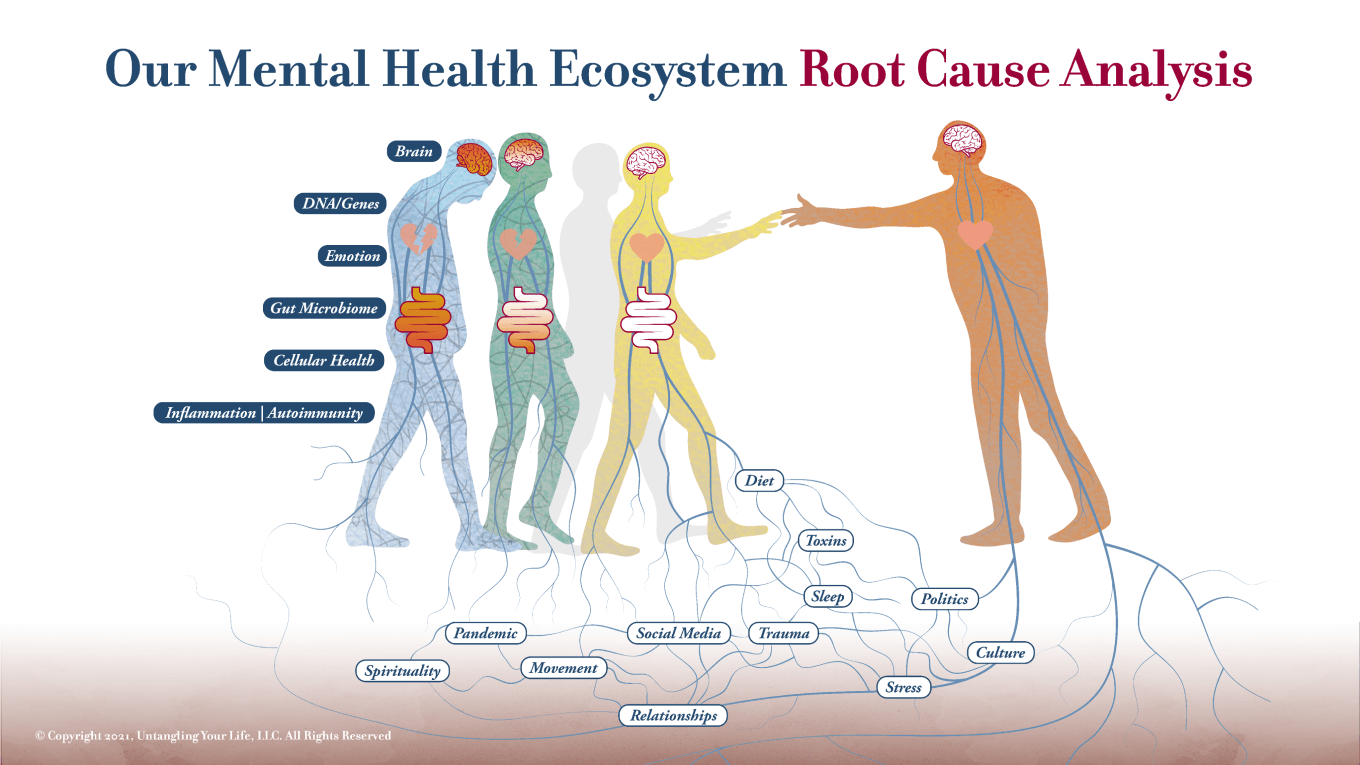LEAKY GUT SYNDROME
Treating Leaky Gut Syndrome
- Home
- Conditions We Treat
- Leaky Gut
The gut and the brain are deeply connected, sending each other millions of messages a day—and improving the health of one often directly benefits the other.
A "leaky gut" occurs when your intestinal lining becomes porous, allowing undigested foods and bacteria into the bloodstream. If left untreated, this condition can lead to chronic brain inflammation, which in turn can lead to symptoms of depression, anxiety, and other mental health concerns.
In other words, if you suffer from a leaky gut, your mental health may suffer as well. That’s why we treat both, so you can feel better in both mind and body.

How We Help
Nutritional Psychiatry
Eating a healthier diet can help heal your gut and brain. Our nutritional psychiatrist works with you to build sustainable health-promoting habits.
Talk Therapy
If your leaky gut has already “leaked” into your emotional life, talking to our clinicians can help you recover both your emotional and physical health.
Root Cause Psychiatry®
Our Root Cause program uses innovative testing to identify and treat gut, brain, and immune system dysregulation.
What is the
Gut-Brain Connection?
Leaky Gut Resources
-
What is a "microbiome?"
By understanding more about the 90 trillion organisms living inside your gut, you can reshape your health destiny.
-
The Gut-Brain Connection, explained
The feedback loop between your brain and your gut is central to emotional and physical health.
-
Leaky gut, leaky brain, leaky emotions?
If you suffer from a leaky gut, there are plenty of actions you can take to feel well once again.


Could leaky gut symptoms be impacting your mood?
If you are suffering from bloating, gas, constipation, diarrhea, or other abdominal symptoms, you may have leaky gut syndrome... and if you're also suffering from depression, anxiety, or other mental health concerns, the two conditions may be related.
.png?width=144&height=144&name=Untitled%20design%20(34).png)
